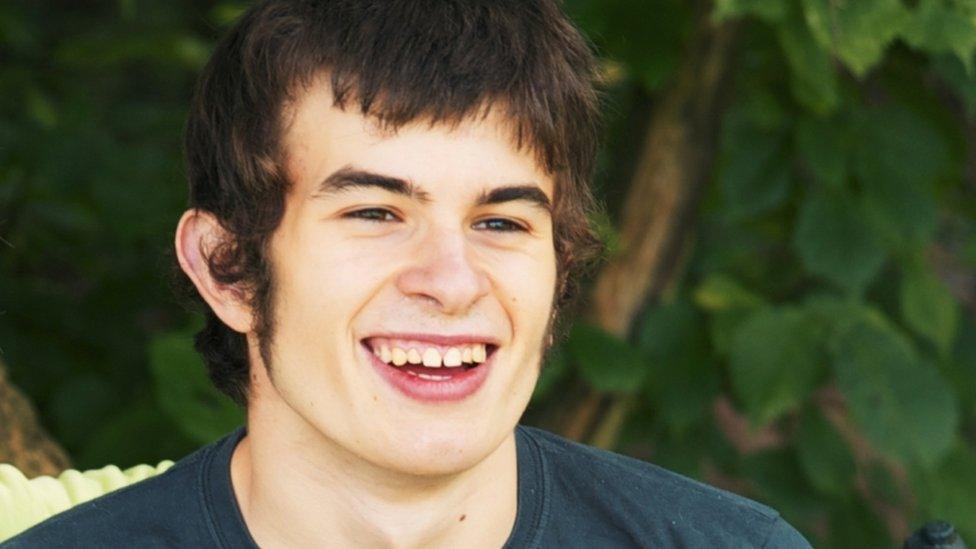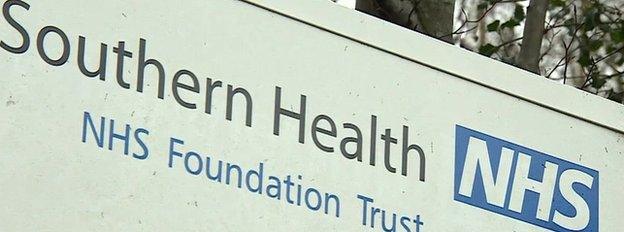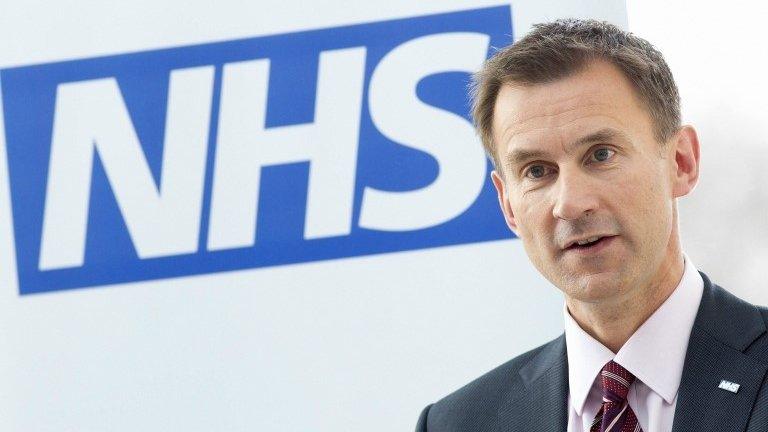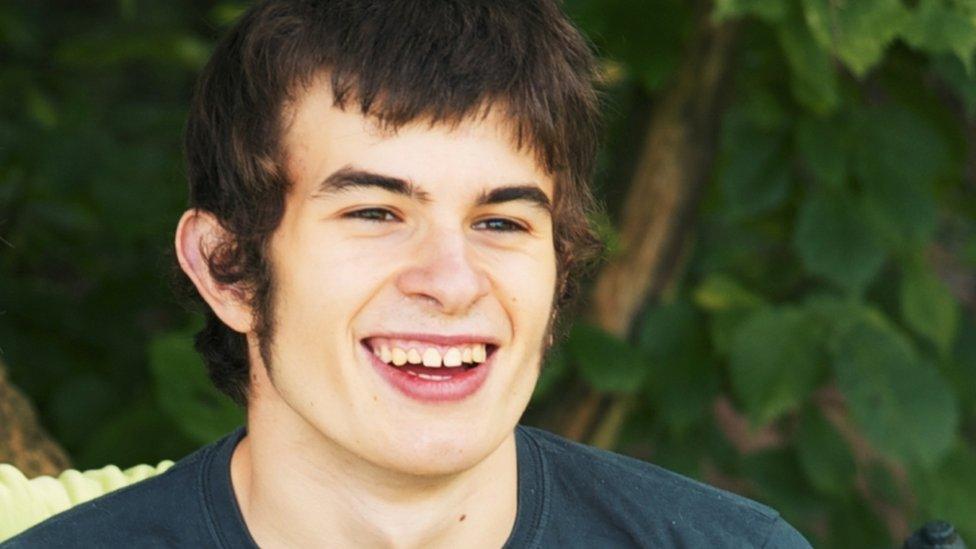NHS chief apologises after deaths
- Published
Katrina Percy, the chief executive of Southern Health, told BBC News that she would not be resigning
The head of an NHS body that failed to investigate the unexpected deaths of more than 1,000 people has apologised.
The report, revealed by the BBC, into deaths at Southern Health NHS Foundation Trust blamed a "failure of leadership".
The chief executive, Katrina Percy, has said sorry. She also criticised the report and refused to resign.
On Thursday, Health Secretary Jeremy Hunt said he was "profoundly shocked" by the report.
It was ordered in 2013, after 18-year-old Connor Sparrowhawk drowned in a bath following an epileptic seizure while a patient at Southern Health hospital in Oxford.

Connor Sparrowhawk, who died at Slade House, had epilepsy and experienced seizures
An independent investigation said his death had been preventable and an inquest jury found neglect by the trust had contributed to his death.
His mother, Sara Ryan, had earlier told BBC News that behaviour of the trust was "barbaric".
Mental health
The trust is one of the country's largest mental health trusts, covering Hampshire, Dorset, Wiltshire, Oxfordshire and Buckinghamshire and providing services to around 45,000 people.
Ms Percy has been in charge, external since it was established.
Responding to the report, she told the BBC: "I'm really sorry that we haven't got some of our investigations right in the past, clearly that's the case.
"I'm really sorry to anybody who has to lose a loved one in our care."
The leaked report, which was passed to BBC News, looked at all deaths at the trust between April 2011 and March 2015. During that period, it found 10,306 people had died. Most of these deaths were expected but 1,454 were not.
Of those, 272 were treated as critical incidents, of which just 195 - 13% - were treated by the trust as a serious incident requiring investigation (SIRI).
The BBC's Michael Buchanan speaks to a family about the loss of their daughter
Ms Percy also refuted some of the reports findings, saying: "Unfortunately the people writing the report haven't looked at our numbers appropriately and I can absolutely guarantee members of the public that any death that happens in our hospitals, or in one of our inpatient units, that's unexpected - is fully investigated and has been fully investigated.
"I want to reassure people that our organisation is not an outlier in terms of the number of deaths."
And she insisted she would not resign: "My job is to lead an organisation and make sure we have the right environment for our doctors and nurses, that's my job and I'm continuing to do that at the moment."

Key findings from the report

The trust could not demonstrate a comprehensive systematic approach to learning from deaths
Despite the trust having comprehensive data on deaths, it failed to use it effectively
Too few deaths among those with learning disabilities and over-65s with mental health problems were investigated and some cases should have been investigated further
In nearly two-thirds of investigations, there was no family involvement
The report blamed a "failure of leadership" at Southern Health NHS Foundation Trust

The report also found that the likelihood of an unexpected death being investigated depended hugely on the type of patient.
The most likely group to be looked into were adults with mental health problems, where 30% were investigated.
'Unfinished business'
For those with learning disabilities the figure was 1% and among over-65s with mental health problems it was only 0.3%.
Mr Hunt told the Commons that the culture change required in the NHS remained "unfinished business" from the Mid Staffs scandal.
"The fundamental question that we all need to reflect on is why is it that we don't currently have the right reporting culture in the NHS when it comes to unexpected deaths," he said.
- Published10 December 2015

- Published10 December 2015
